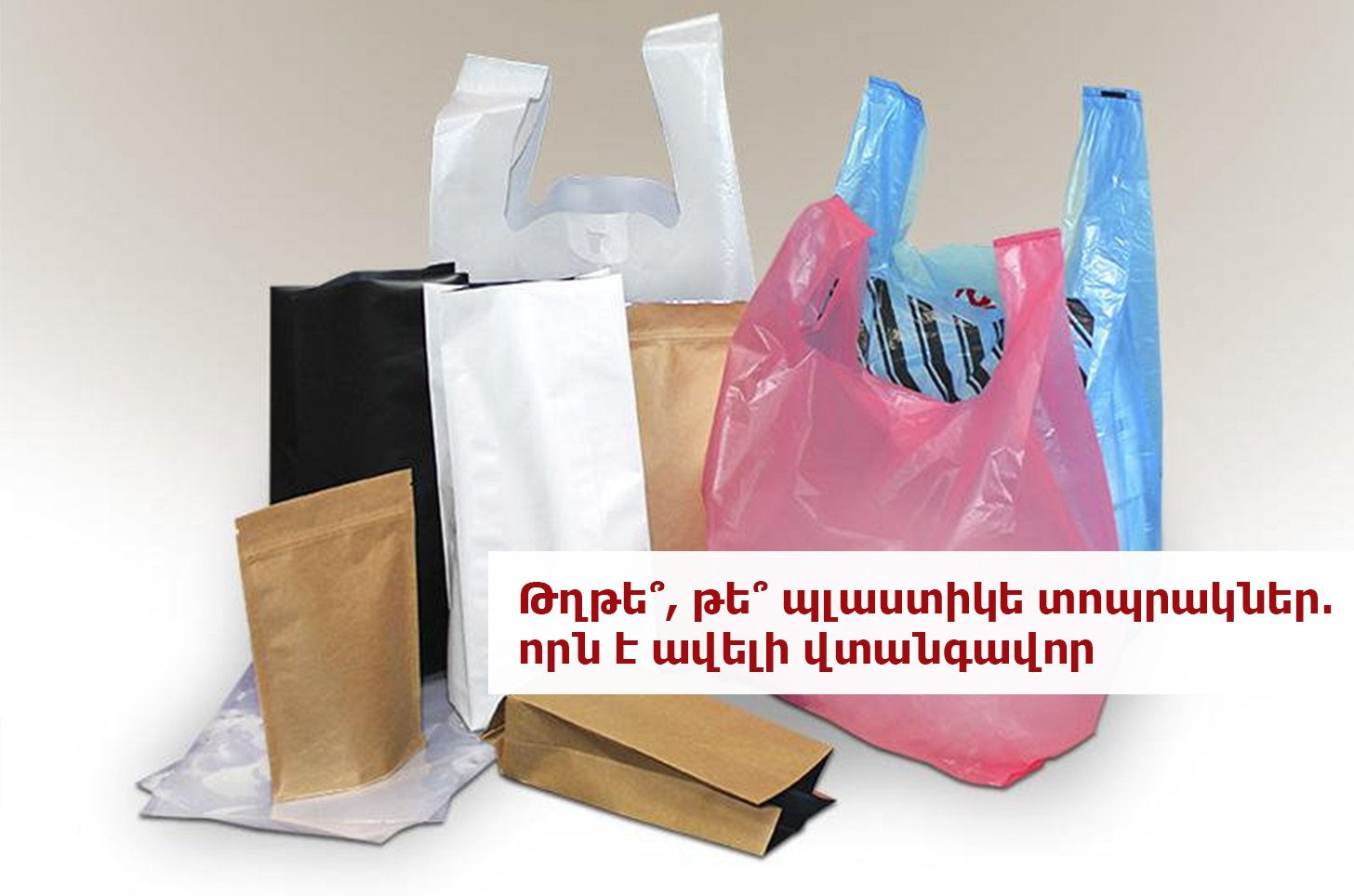The average lifespan of plastic bags is 100-400 years. According to the Ministry of Environment (MoE), plastic waste accounts for more than 30% of household waste in the country. In 2013-2015, about 16 tons of polyethylene bags were imported to Armenia, 8,149.1 tons were produced. In order to reduce their volume, in 2019 the Ministry of Environment introduced a bill that would ban the sale of plastic bags.
Which bags are allowed to be sold?
The Ministry has been regularly announcing since 2019 that from January 1, 2022, the sale of polyethylene bags in commercial facilities will be banned.
The bags, however, continued to be sold even after the law came into force, which surprised many consumers.
As the ministry has already clarified, it is prohibited not to sell all plastic bags in general, but bags less than 50 microns thick. Bags thinner than 50 microns without a handle are also applicable, but only in the case of use for weighing.
The purpose of this is to maintain the sanitary and hygienic condition of the product. Bags and sacks made from secondary raw materials are also an exception and can be used, as the government wants to encourage raw material processing companies.
Will the new bags do less damage?
No. Lusine Avetisyan, Head of the Strategy Policy Department of the MoE, also admits that polyethylene bags thicker than 50 microns are harmful to the environment. Moreover, their decomposition is a longer and more complicated process, but the ministry thinks that a thicker bag is a more durable bag, therefore it can be used many times. In addition, “new bags are more expensive and people will be able to use them several times before throwing them away.” If we consider that many people use bags for garbage disposal, the possibility of using them several times is very problematic.
Media.am visited 6 large supermarkets in Yerevan
Trying to understand to what extent the established norms are observed, Media.am visited 6 large supermarkets in Yerevan: “Sas,” “Yerevan City,” “Nor Zovk,” “Tsiran,” “Krpak,” and “Parma.” We visited the branches in the Central Administrative District on January 23, 24 and 25 and bought one bag from each supermarket.
On January 25, the employees of the Trade and Services Department of the Yerevan Municipality inspected “Nor Zovk,” where we also asked them to check the collected plastic bags with the help of a special measuring device, a micrometer. The results are below:
Although the plastic bags in “Sas” and “Parma” supermarkets were thinner than 50 microns, that is, they did not correspond to the established norms, their price had risen from 10 AMD to 50 AMD.
The old bags were being used in “Nor Zovk” supermarket, with the reasoning that they were using up the stock they already had, after which they would switch to bags larger than 50 microns. However, the law does not provide for such an exception and the outlets had several years to use up the thin bags. It should be noted that the violation of the law presupposes administrative responsibility in the amount of 30 thousand AMD.
Paper or plastic? Which is more harmful?
According to the Food and Agriculture Organization of the United Nations, the world has lost 420 million hectares of forests since 1990, mainly in Africa and South America. The rate of deforestation is growing. Every 5th tree on the planet is cut down to get paper. This leads to the extinction of many species of plants and animals.
At the same time, the rate of paper use is growing in the world. In 2017, the world’s population, on the whole, consumed more than 423 million tons of material.
Although the supply of paper for printing books or magazines has decreased, the same cannot be said about packaging. Paper consumption is also increasing due to the ban on the use of plastic. Meanwhile, reusable plastic bags, according to studies, do much less damage to the environment than non-recycled paper, and there are not many paper recycling companies in Armenia and they are concentrated in Yerevan.
According to the German environmental organization Deutsche Umwelthilfe, various chemicals are used to make non-recyclable paper bags, and a large amount of CO2 is emitted during transportation. It turns out that the production of one paper bag causes more damage to the environment than plastic bags. Studies have shown that balance can be restored if paper bags become reusable.
Ophelia Simonyan







